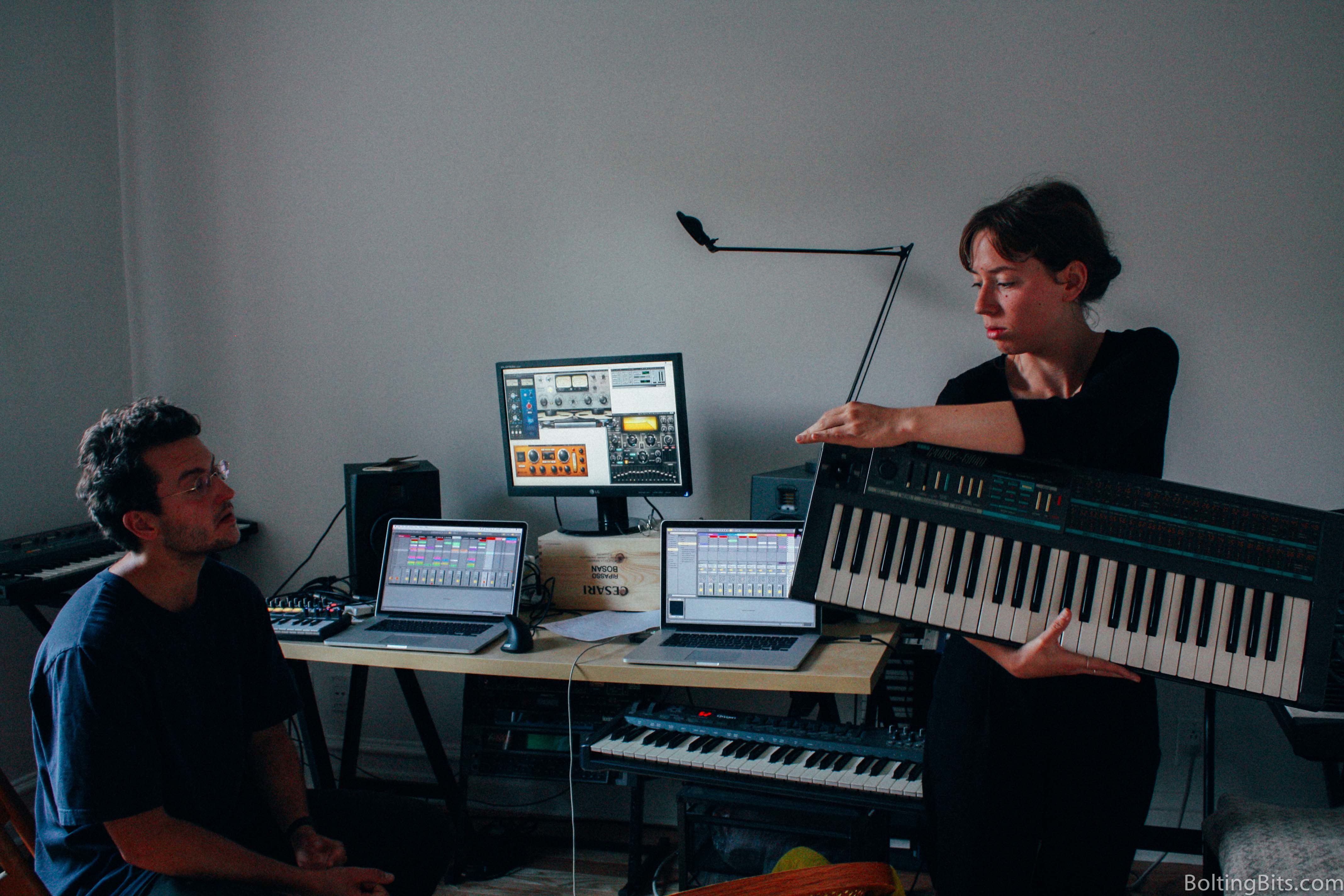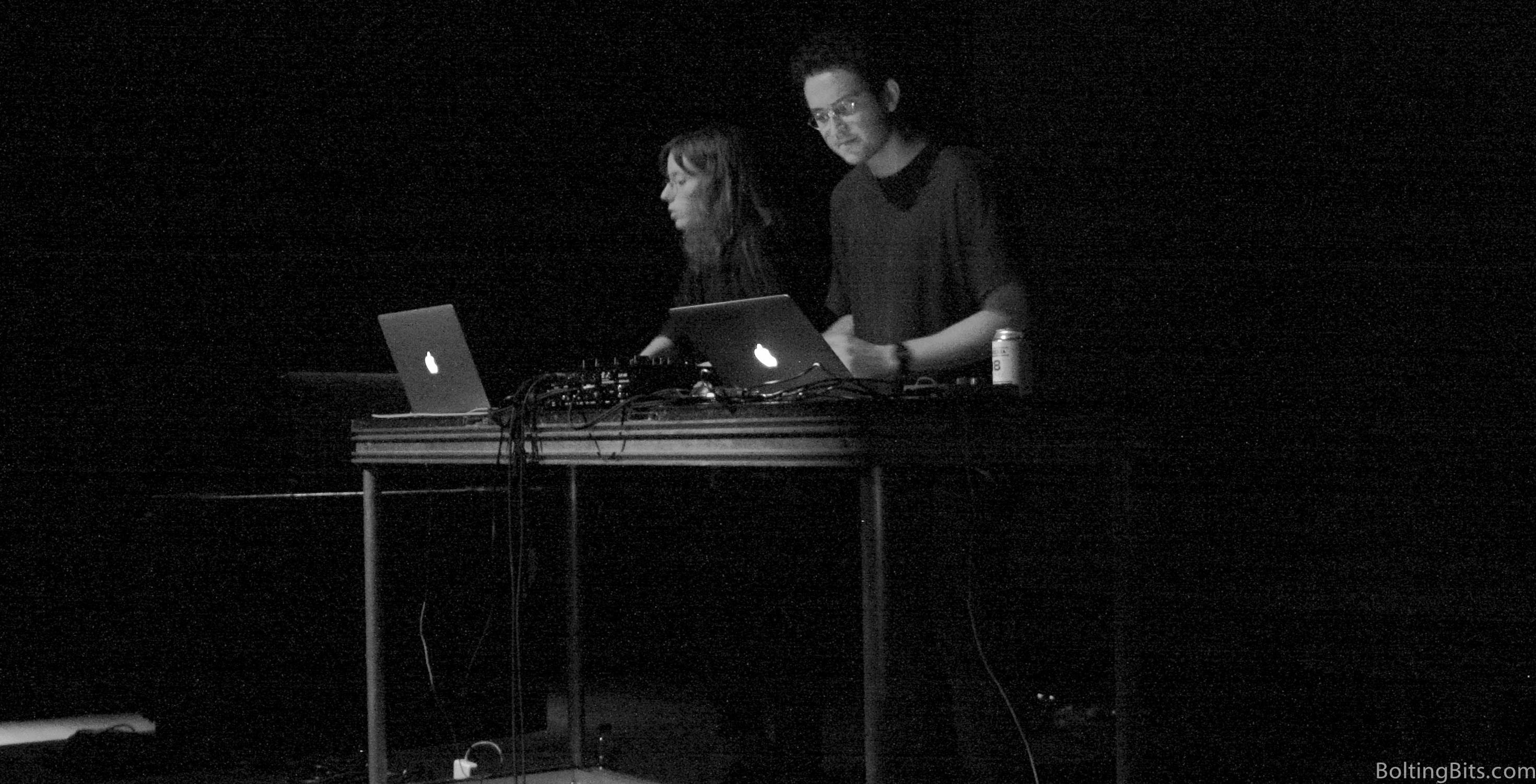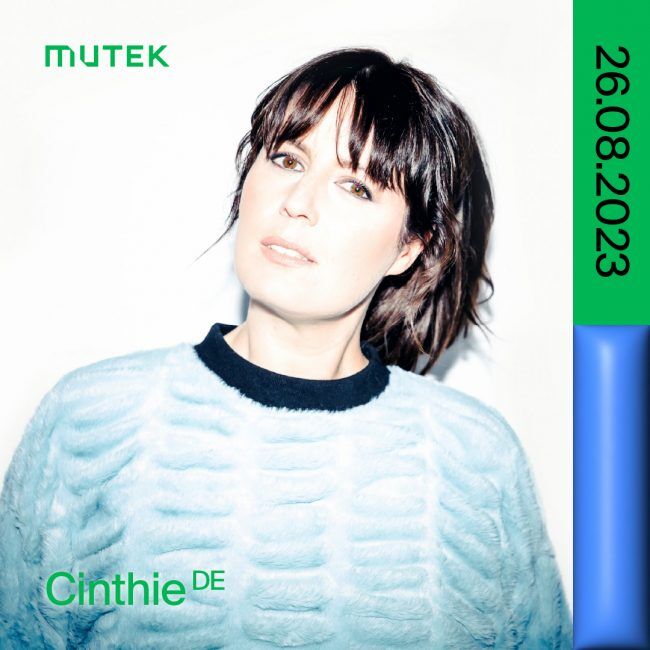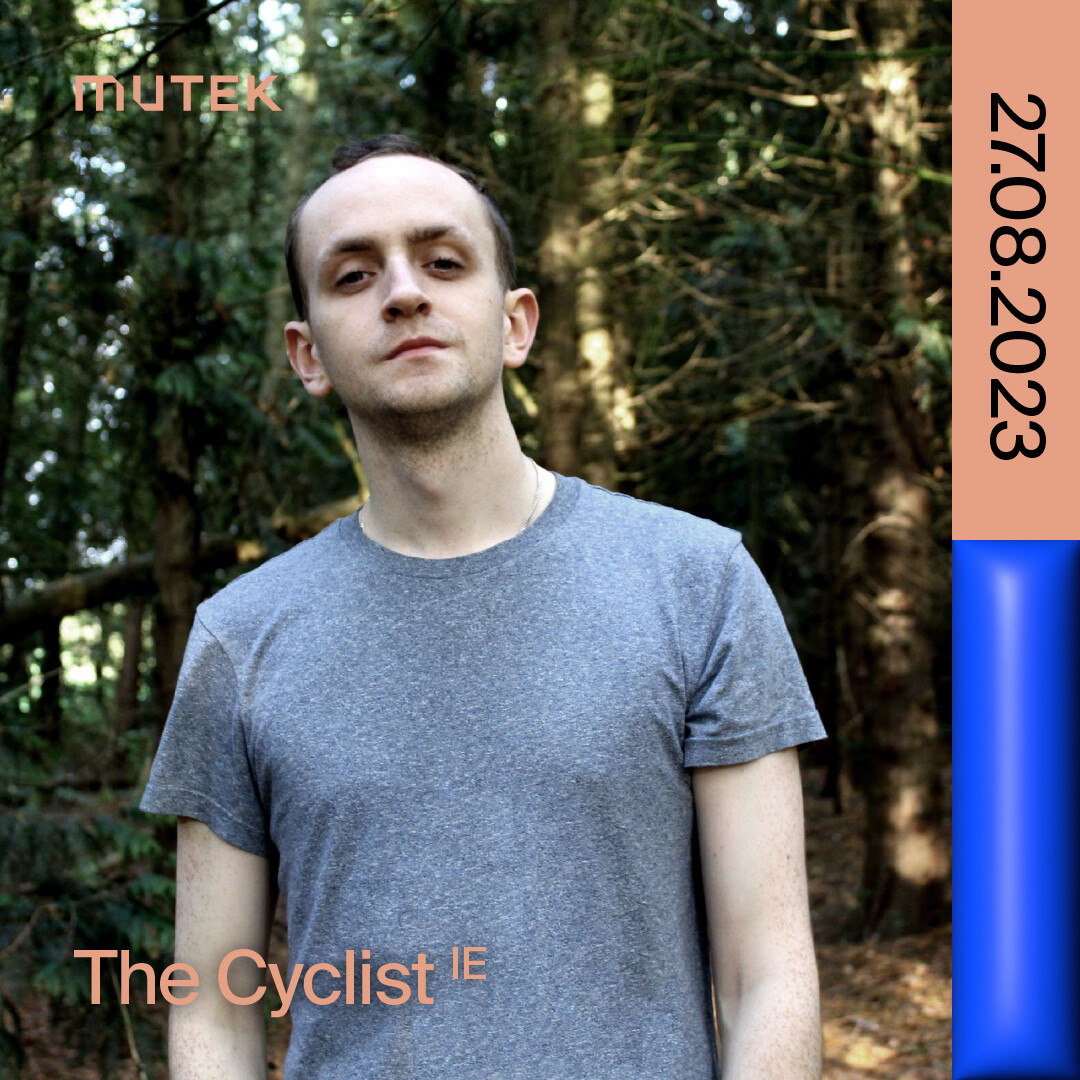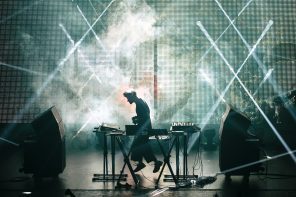Montreal-based duo Loose Excursions make their live debut at Mutek this year, providing dub, house and techno flavours for electronic music aficionados from around the world. Jeanne Gariépy and Gabriel Rei, longtime friends, share a passion for many strains of dance music, and their mutual understanding and appreciation of the art drive their musical narrative. The project is a purely live endeavor – each performance captures a moment in time of their respective musical journeys and each episode can only be experienced once. We caught up with Loose Excursions on a beautiful evening at their Rosemont studio.
INTERVIEW
How did you two meet and start making music together?
J: We met through mutual friends a little under 10 years ago, at some strange afterparties (laughs) and soon realized that we both made music and shared similar tastes. This led to some jam sessions at Gab’s, who had a nicer studio than mine at the time.
G: At the beginning, it seemed like we were the only ones in our friend group who were interested in electronic music, most of them listened moreso to jazz, while we were dancing to St. Germain (laughs).
J: We had the idea of doing spontaneous jams with certain themes, and come out with 30 minutes or an hour of original material, and share them on a regular basis. Loose Excursions emerged from n.10.as, and we started having bi-weekly radio shows in summer 2016. They served as a great creative exercise, which is how I see the project today.
What are the main musical influences/artists for the project?
J/G: A huge mix of artists, but Ron Trent is definitely a big one, Glenn Underground, Strictly Jazz Unit, Mr. Fingers. Groovy, accessible and melodic elements especially are important in our music.
G: I listen to some Italian techno as well, some ‘dustier’ sounds (ie Terekke) and we like to situate between that stuff and the more disco/funk vibe. Ron Trent was good at bridging the gap between funkier tracks and some harder hitting ones. For the Mutek show we really mixed things up stylistically.
For your jam sessions, does one person typically take care of melody, the other rhythm?
J/G: We normally have two linked laptops running Ableton through a mixer, and for the Mutek show Gab is taking care of the rhythm section (drums/bass) while Jeanne deals with the melodic elements. However, this is just the arrangement for this show – in compositional mode we both share ideas in both domains.
Have you listened to the other artists you are performing with the night of your show (Don’t Assume: NTS Radio On Stage 1)?
J: For sure, definitely Beatrice Dillon and Space Afrika are artists that we follow and are inspired by.
G: I think the set we prepared fits nicely between those two artists actually, some more straight up dub techno or house alongside more experimental explorations.
Any other artists you are particularly excited to see at Mutek?
J: Unfortunately we won’t be able to see Aurora Halal as her show at Metropolis is the same night as ours. Again, Space Afrika I’m very excited for.
G: Also Groj and Revlux, some friends of ours, are playing tonight at the free stage, Revlux just released a record on a new Montreal based label as well.
Where do you think the Montreal electronic music underground is today? Do you think it is in a transitional stage and where would you like to see it go?
G: There are a lot of potential spaces, both older and new that don’t get used, for example I think Club Lambi is a very nice space with a great soundsystem that doesn’t get the attention it deserves.
J: People just need to take the initiative for spaces that are already established, for example near us on St. Hubert, there are a lot of Salsa clubs – the party scene is obviously not limited to the house/techno sphere and there are plenty of other underground parties that continue to happen despite spaces at Durocher being shut down. We need to take care of our spaces, create an identity that is unique to your party, and think outside the box to get the necessary vibe. I’m optimistic about the future of the underground!
Favourite local artists/DJs?
J:/G Yep, plenty. My friend and excellent DJ, Elisabeth Dalton, (semi-local based in Boston) is definitely one close to my heart. Simon Chioni (aka DJ Voila) is also an excellent producer and a true artist. He was trained at the Conservatory and his set at Mutek last year was amazing as well. He runs the label Acte. Adam Feingold and Francis Oak (now known as Priori), I adore their material. All the Temple, Booma stuff as well. Anthony Galatti, Adam Hodgins, more pillars of the scene. Hodgins is a great person and teacher as well, always down to speak about music and sound.
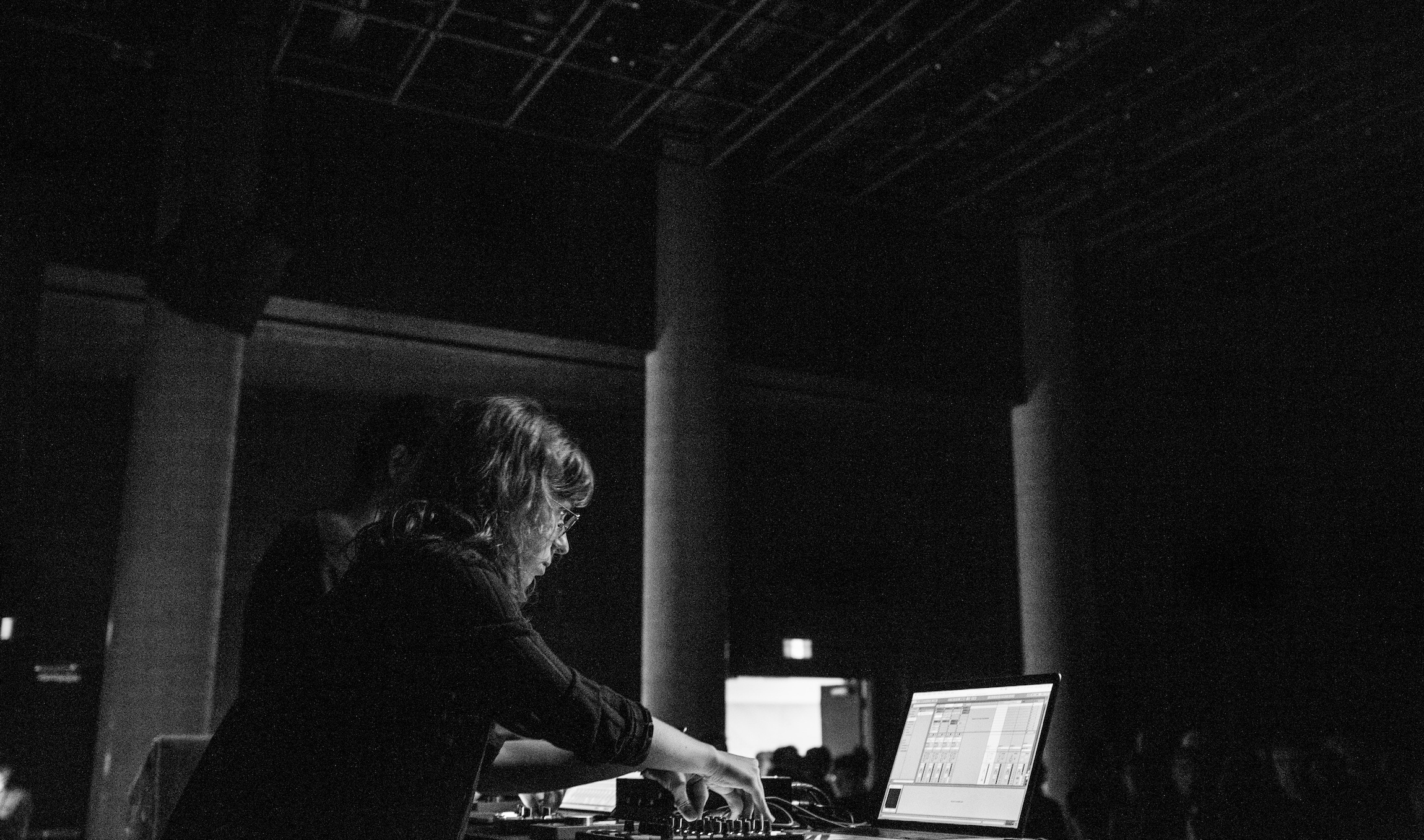 Crédit photo : Bruno Destombes
Crédit photo : Bruno Destombes
Favourite pieces of gear?
G: Well Ableton is really at the heart of our setup, I am fairly obsessed with ‘workflow’ and can spend hours arranging the setup. I really try and create a template where everything is easy and spontaneous so you can jump right in the jam. Ableton needs to be able to manifest as an extension of your thoughts.
J: Definitely, I don’t use Ableton as well as you (laughs), I see it more simply as a place to put my ideas. In terms of hardware, I love my Korg Poly -800 – it’s not the most user friendly and it takes time to program but the the process of designing patches is very exciting to me. Also the TR-8 is so easy to use that it is crucial for jams.
G: I used to have more synths but I sold a lot of my stuff. I use a lot of plugins now, which work better for me.
J: It’s the opposite for me, my computer screen does not inspire me whatsoever. I need to use my hands.
Anything on the gear wishlist?
J: It’s a little boring, but I definitely would like a new soundcard!
G: Like an Apogee or something, they cost like 1,500 dollars.
J: Or a better mixer, or patchbay. Definitely not the most exciting but these are the next logical steps for us!
Would you say that there is a ‘Canadian’ or more specifically ‘Montreal’ sound within electronic music?
J: I don’t think so, but that’s what I think is cool. Living here is really special because it’s such a mix of different cultures and backgrounds and this is shown in the music and shows that are put on here as well.
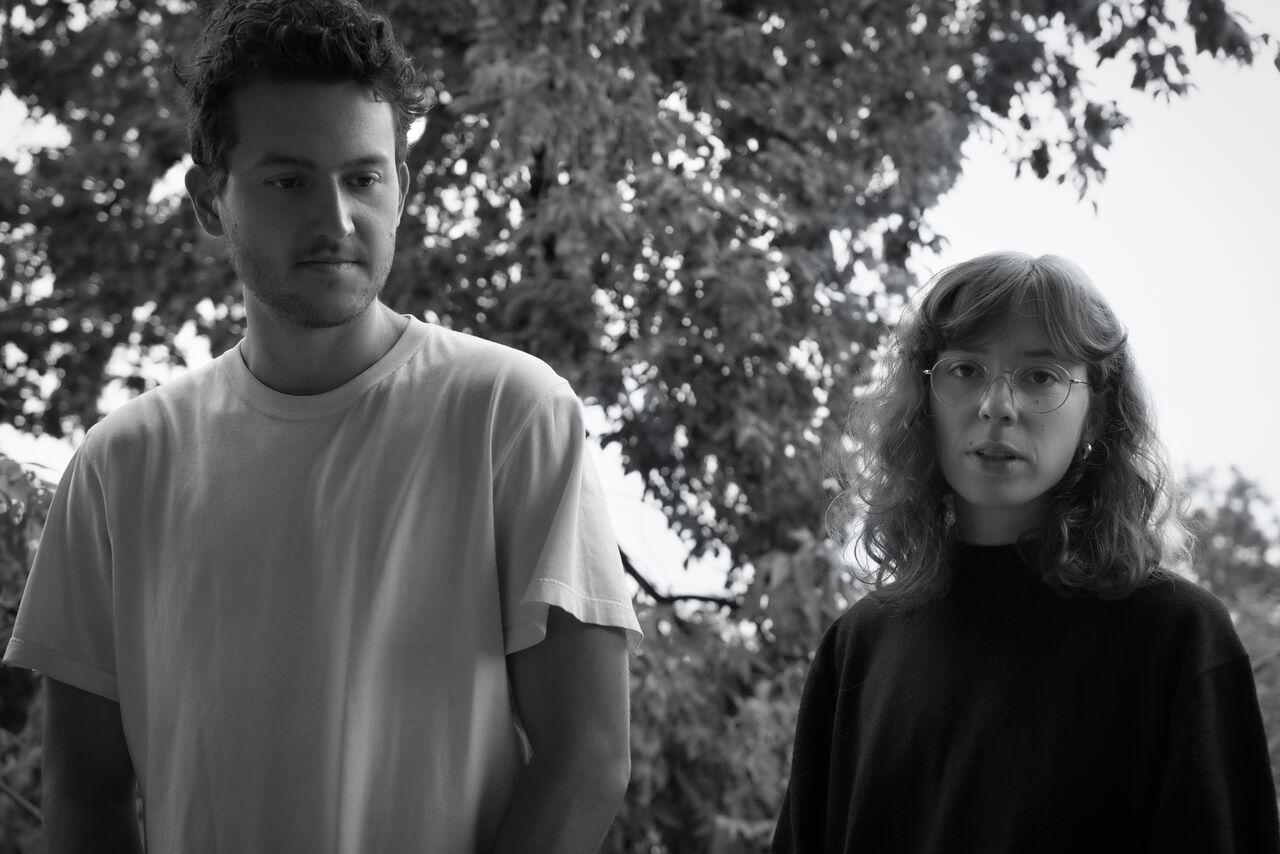 Crédit photo: Samuel Trudelle-Gendron
Crédit photo: Samuel Trudelle-Gendron
Where else do you find inspiration outside of music?
J/G: It may sound a little corny, but in some ways, conviviality. Hosting and meeting people, drinking wine, all things within the spirit of that. When we produce we always try and get up and dance to see if it works, then continue. There needs to be a certain social warmth to the music, maybe that sounds a little too abstract (laughs).
Did you have a musical background before producing electronic music?
J: I have a jazz background, I studied music (jazz guitar) at CEGEP, and now I’m doing electroacoustic composition at the Conservatory, nothing to do with techno or house but there is definitely some common ground there!
G: I was also a jazz guy, but in percussion. I also played a bit of piano, guitar. We were never jazz purists but it would definitely be a big influence on us.
J: Now I listen to more spiritual jazz, some of the jazz they made you listen to in school wasn’t really my thing which made me realize it wasn’t my path.
G: We were too attracted to the physical aspect of dance music, going out to dance was really appealing. There’s just something special about house and techno that can’t really be explained but it’s just so addictive to certain people, while others still need to be initiated!
Oliver Moes

